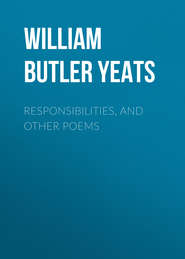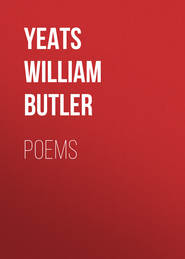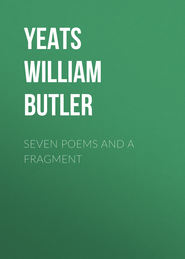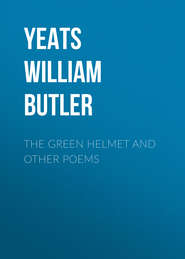По всем вопросам обращайтесь на: info@litportal.ru
(©) 2003-2024.
✖
The Cutting of an Agate
Настройки чтения
Размер шрифта
Высота строк
Поля
VI
In a few years the Four Masters were to write the history of that time, and they were to record the goodness or the badness of Irishman and Englishman with entire impartiality. They had seen friends and relatives persecuted, but they would write of that man’s poisoning and this man’s charities and of the fall of great houses, and hardly with any other emotion than a thought of the pitiableness of all life. Friend and enemy would be for them a part of the spectacle of the world. They remembered indeed those Anglo-French invaders who conquered for the sake of their own strong hand, and when they had conquered became a part of the life about them, singing its songs, when they grew weary of their own Iseult and Guinevere. The Four Masters had not come to understand, as I think, despite famines and exterminations, that new invaders were among them, who fought for an alien State, for an alien religion. Such ideas were difficult to them, for they belonged to the old individual, poetical life, and spoke a language even, in which it was all but impossible to think an abstract thought. They understood Spain, doubtless, which persecuted in the interests of religion, but I doubt if anybody in Ireland could have understood as yet that the Anglo-Saxon nation was beginning to persecute in the service of ideas it believed to be the foundation of the State. I doubt if anybody in Ireland saw that with certainty, till the Great Demagogue had come and turned the old house of the noble into ‘the house of the Poor, the lonely house, the accursed house of Cromwell.’ He came, another Cairbry Cat Head, with that great rabble, who had overthrown the pageantry of Church and Court, but who turned towards him faces full of the sadness and docility of their long servitude, and the old individual, poetical life went down, as it seems, for ever. He had studied Spenser’s book and approved of it, as we know, finding, doubtless, his own head there, for Spenser, a king of the old race, carried a mirror which showed kings yet to come though but kings of the mob. Those Bohemian poets of the theatres were wiser, for the States that touched them nearly were the States where Helen and Dido had sorrowed, and so their mirrors showed none but beautiful heroical heads. They wandered in the places that pale passion loves, and were happy, as one thinks, and troubled little about those marching and hoarse-throated thoughts that the State has in its pay. They knew that those marchers, with the dust of so many roads upon them, are very robust and have great and well-paid generals to write expedient despatches in sound prose; and they could hear mother earth singing among her cornfields:
‘Weep not, my wanton! smile upon my knee;
When thou art old there’s grief enough for thee.’
VII
There are moments when one can read neither Milton nor Spenser, moments when one recollects nothing but that their flesh had partly been changed to stone, but there are other moments when one recollects nothing but those habits of emotion that made the lesser poet especially a man of an older, more imaginative time. One remembers that he delighted in smooth pastoral places, because men could be busy there or gather together there, after their work, that he could love handiwork and the hum of voices. One remembers that he could still rejoice in the trees, not because they were images of loneliness and meditation, but because of their serviceableness. He could praise ‘the builder oake,’ ‘the aspine, good for staves,’ ‘the cypresse funerall,’ ‘the eugh, obedient to the bender’s will,’ ‘the birch for shaftes,’ ‘the sallow for the mill,’ ‘the mirrhe sweete-bleeding in the bitter wound,’ ‘the fruitful olive,’ and ‘the carver holme.’ He was of a time before undelighted labour had made the business of men a desecration. He carries one’s memory back to Virgil’s and Chaucer’s praise of trees, and to the sweet-sounding song made by the old Irish poet in their praise.
I got up from reading the Faerie Queene the other day and wandered into another room. It was in a friend’s house, and I came of a sudden to the ancient poetry and to our poetry side by side – an engraving of Claude’s ‘Mill’ hung under an engraving of Turner’s ‘Temple of Jupiter.’ Those dancing country-people, those cow-herds, resting after the day’s work, and that quiet mill-race made one think of Merry England with its glad Latin heart, of a time when men in every land found poetry and imagination in one another’s company and in the day’s labour. Those stately goddesses, moving in slow procession towards that marble architrave among mysterious trees, belong to Shelley’s thought, and to the religion of the wilderness – the only religion possible to poetry to-day. Certainly Colin Clout, the companionable shepherd, and Calidor, the courtly man-at-arms, are gone, and Alastor is wandering from lonely river to river finding happiness in nothing but in that star where Spenser too had imagined the fountain of perfect things. This new beauty, in losing so much, has indeed found a new loftiness, a something of religious exaltation that the old had not. It may be that those goddesses, moving with a majesty like a procession of the stars, mean something to the soul of man that those kindly women of the old poets did not mean, for all the fulness of their breasts and the joyous gravity of their eyes. Has not the wilderness been at all times a place of prophecy?
VIII
Our poetry, though it has been a deliberate bringing back of the Latin joy and the Latin love of beauty, has had to put off the old marching rhythms, that once delighted more than expedient hearts, in separating itself from a life where servile hands have become powerful. It has ceased to have any burden for marching shoulders, since it learned ecstasy from Smart in his mad cell, and from Blake, who made joyous little songs out of almost unintelligible visions, and from Keats, who sang of a beauty so wholly preoccupied with itself that its contemplation is a kind of lingering trance. The poet, if he would not carry burdens that are not his and obey the orders of servile lips, must sit apart in contemplative indolence playing with fragile things.
If one chooses at hazard a Spenserian stanza out of Shelley and compares it with any stanza by Spenser, one sees the change, though it would be still more clear if one had chosen a lyrical passage. I will take a stanza out of Laon and Cythna, for that is story-telling and runs nearer to Spenser than the meditative Adonais:
‘The meteor to its far morass returned:
The beating of our veins one interval
Made still; and then I felt the blood that burned
Within her frame, mingle with mine, and fall
Around my heart like fire; and over all
A mist was spread, the sickness of a deep
And speechless swoon of joy, as might befall
Two disunited spirits when they leap
In union from this earth’s obscure and fading sleep.
The rhythm is varied and troubled, and the lines, which are in Spenser like bars of gold thrown ringing one upon another, are broken capriciously. Nor is the meaning the less an inspiration of indolent muses, for it wanders hither and thither at the beckoning of fancy. It is now busy with a meteor and now with throbbing blood that is fire, and with a mist that is a swoon and a sleep that is life. It is bound together by the vaguest suggestion, while Spenser’s verse is always rushing on to some preordained thought. ‘A popular poet’ can still indeed write poetry of the will, just as factory girls wear the fashion of hat or dress the moneyed classes wore a year ago, but ‘popular poetry’ does not belong to the living imagination of the world. Old writers gave men four temperaments, and they gave the sanguineous temperament to men of active life, and it is precisely the sanguineous temperament that is fading out of poetry and most obviously out of what is most subtle and living in poetry – its pulse and breath, its rhythm. Because poetry belongs to that element in every race which is most strong, and therefore most individual, the poet is not stirred to imaginative activity by a life which is surrendering its freedom to ever new elaboration, organisation, mechanism. He has no longer a poetical will, and must be content to write out of those parts of himself which are too delicate and fiery for any deadening exercise. Every generation has more and more loosened the rhythm, more and more broken up and disorganised, for the sake of subtlety of detail, those great rhythms which move, as it were, in masses of sound. Poetry has become more spiritual, for the soul is of all things the most delicately organised, but it has lost in weight and measure and in its power of telling long stories and of dealing with great and complicated events. Laon and Cythna, though I think it rises sometimes into loftier air than the Faerie Queene; and Endymion, though its shepherds and wandering divinities have a stranger and more intense beauty than Spenser’s, have need of too watchful and minute attention for such lengthy poems. In William Morris, indeed, one finds a music smooth and unexacting like that of the old story-tellers, but not their energetic pleasure, their rhythmical wills. One too often misses in his Earthly Paradise the minute ecstasy of modern song without finding that old happy-go-lucky tune that had kept the story marching.
Spenser’s contemporaries, writing lyrics or plays full of lyrical moments, write a verse more delicately organised than his and crowd more meaning into a phrase than he, but they could not have kept one’s attention through so long a poem. A friend who has a fine ear told me the other day that she had read all Spenser with delight and yet could remember only four lines. When she repeated them they were from the poem by Matthew Roydon, which is bound up with Spenser because it is a commendation of Sir Philip Sidney:
‘A sweet, attractive kind of grace,
A full assurance given by looks,
Continual comfort in a face,
The lineaments of Gospel books.’
Yet if one were to put even these lines beside a fine modern song one would notice that they had a stronger and rougher energy, a featherweight more, if eye and ear were fine enough to notice it, of the active will, of the happiness that comes out of life itself.
IX
I have put into this book[5 - Poems of Spenser: Selected and with an Introduction by W. B. Yeats. (T. C. and E. C. Jack, Edinburgh, N.D.)] only those passages from Spenser that I want to remember and carry about with me. I have not tried to select what people call characteristic passages, for that is, I think, the way to make a dull book. One never really knows anybody’s taste but one’s own, and if one likes anything sincerely one may be certain that there are other people made out of the same earth to like it too. I have taken out of The Shepheards Calender only those parts which are about love or about old age, and I have taken out of the Faerie Queene passages about shepherds and lovers, and fauns and satyrs, and a few allegorical processions. I find that though I love symbolism, which is often the only fitting speech for some mystery of disembodied life, I am for the most part bored by allegory, which is made, as Blake says, ‘by the daughters of memory,’ and coldly, with no wizard frenzy. The processions I have chosen are either those, like the House of Mammon, that have enough ancient mythology, always an implicit symbolism, or, like the Cave of Despair, enough sheer passion to make one forget or forgive their allegory, or else they are, like that vision of Scudamour, so visionary, so full of a sort of ghostly midnight animation, that one is persuaded that they had some strange purpose and did truly appear in just that way to some mind worn out with war and trouble. The vision of Scudamour is, I sometimes think, the finest invention in Spenser. Until quite lately I knew nothing of Spenser but the parts I had read as a boy. I did not know that I had read so far as that vision, but year after year this thought would rise up before me coming from I knew not where. I would be alone perhaps in some old building, and I would think suddenly ‘out of that door might come a procession of strange people doing mysterious things with tumult. They would walk over the stone floor, then suddenly vanish, and everything would become silent again.’ Once I saw what is called, I think, a Board School continuation class play Hamlet. There was no stage, but they walked in procession into the midst of a large room full of visitors and of their friends. While they were walking in, that thought came to me again from I knew not where. I was alone in a great church watching ghostly kings and queens setting out upon their unearthly business.
It was only last summer, when I read the Fourth Book of the Faerie Queene, that I found I had been imagining over and over the enchanted persecution of Amoret.
I give too, in a section which I call ‘Gardens of Delight,’ the good gardens of Adonis and the bad gardens of Phædria and Acrasia, which are mythological and symbolical, but not allegorical, and show, more particularly those bad islands, his power of describing bodily happiness and bodily beauty at its greatest. He seemed always to feel through the eyes, imagining everything in pictures. Marlowe’s Hero and Leander is more energetic in its sensuality, more complicated in its intellectual energy than this languid story, which pictures always a happiness that would perish if the desire to which it offers so many roses lost its indolence and its softness. There is no passion in the pleasure he has set amid perilous seas, for he would have us understand that there alone could the war-worn and the sea-worn man find dateless leisure and unrepining peace.
October, 1902.
notes
1
I had forgotten Falstaff, who is an episode in a chronicle play.
2
Rose Kavanagh, the poet, wrote to her religious adviser from, I think, Leitrim, where she lived, and asked him to get her the works of Mazzini. He replied, ‘You must mean Manzone.’
3
I have heard him say more than once, ‘I will not say our people know good from bad, but I will say that they don’t hate the good when it is pointed out to them, as a great many people do in England.’
4
A small political organiser told me once that he and a certain friend got together somewhere in Tipperary a great meeting of farmers for O’Leary on his coming out of prison, and O’Leary had said at it: ‘The landlords gave us some few leaders, and I like them for that, and the artisans have given us great numbers of good patriots, and so I like them best: but you I do not like at all, for you have never given us anyone.’ I have known but one that had his moral courage, and that was a woman with beauty to give her courage and self-possession.
5
Poems of Spenser: Selected and with an Introduction by W. B. Yeats. (T. C. and E. C. Jack, Edinburgh, N.D.)











